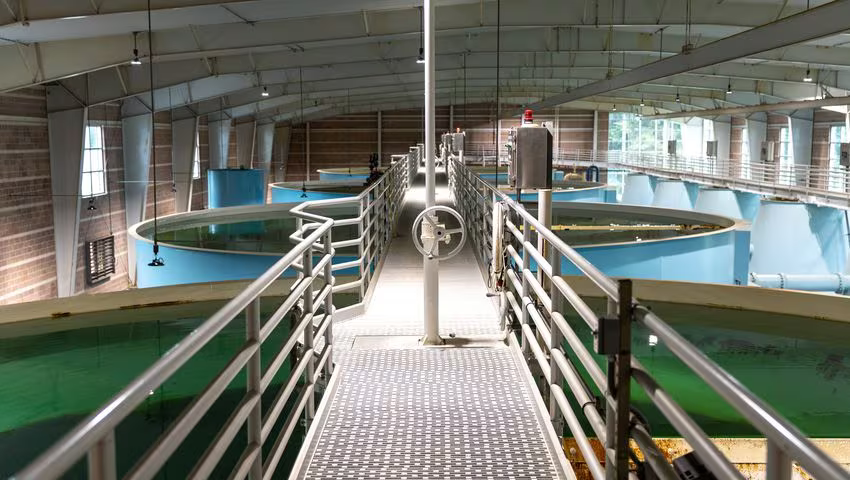GET A FREE QUOTE TODAY - CALL US 770-652-0076
Silica is a mineral compound with the formula SiO2 . This very common mineral has many different forms and is most easily recognized in nature as the mineral quartz.
Silica is actually silicon dioxide. Silicon is the 7th most abundant element in the universe and the second most abundant element in the Earth’s crust, after oxygen. In fact, the vast majority of all rocks are comprised of silicate minerals which have SiO2 as their fundamental building block.
Although the solubility of silica in water is low, and the dissolution rate of silicate minerals is very slow, its sheer abundance means that is present in ground water supplies at some level.
Anyone with a granite countertop in their home can see silica (quartz) as well as a range of silicate minerals just by studying the minerals present in their countertops. It is no wonder that wells drilled into normal rocks pick up silica over the span of years as the groundwater slowly dissolves the rocks.
Silica in Water Supplies
Silica can exist in water supplies in two main forms. The first of these is “Reactive Silica”. Reactive silica is dissolved in water as the bisilicate ion making it a very weak acid. This type of silica can be removed by using specialized ion exchange resins since the silica is dissolved. However, these resins are difficult to regenerate. Requiring harmful strong bases like caustic soda (NaOH) and their use is generally restricted to industrial applications.
The other form of silica in the water is known as “Colloidal Silica”. This form is a polymeric form of silica where the particles are ultra-fine and cannot be filtered out of the water using normal filtration techniques.
Colloidal silica cannot be removed using ion-exchange methods.
Evidence of Silica In The Home
We have found that when the concentration of silica in ground water reaches levels of about 20-25 mg/l, silica deposit problems may become apparent in the home. There are several areas where silica deposits are common.
Silica Etching of Glassware
All glass is primarily comprised of SiO2 as the major constituent. Etching of glassware can be a common problem in the dishwasher when aggressive detergents are used and silica levels are sufficient in the water. The early stages of this start with a silica film. This can cause the glasses to be milky colored or even have a rainbow sheen. It is difficult to remove this from glassware and once etching advances, the glassware is damaged beyond repair.
Common Places to See Silica Deposits
- Water line in toilet bowl – vary hard build up can only be removed with pumice stone or scraping
- On polished chrome surfaces like tub fixtures
- Obvious on black porcelain sinks and surfaces as hard white spots, “islands”, or spidery networks
- Silica domains on glass shower doors – “frosted look”
- Dull, white silica build-up on granite counters
The most common attribute of all silica deposits is how hard and stubborn they are. These deposits are very tough and normal calcium scale removers (acids) will not remove silica deposits
Treatment for Silica
There are only a few ways to reduce silica in the water and most of these are not applicable to residential settings.
1. Lime-soda softening:
This a complex chemical precipitation process using CaOH and Soda Ash to raise the pH to extreme levels causing precipitation of CaCO3 and MgOH. Silica binds to the MgOH and settles out. This method is impractical for residential use.
2. Ultra-filtration:
Specialized polymeric ultra-filters have been developed for industrial water treatment to capture silica. They can be used on collodial silica but not reactive silica. They are expensive and have not been scaled down for residential use.
3. Anion exchange:
This ion-exchange method can be used for reactive silica, but not colloidal silica. Regeneration of the resins is restricted to industrial applications due to hazardous material handling required.
4. Whole-House Reverse Osmosis:
For residential settings, whole house RO is one way to reduce all types of silica. These systems have to be sized properly and normally pre-treatment for iron & hardness is required.
Because it is so difficult to remove silica from the water, the most common approach to deal with it is one of prevention and mitigation of deposits:
Mitigation of Silica
- Lower water temperature below 140 F in dishwashers
- Use soft-water detergents with no phosphorus and air-dry only in dishwashers
- Wash delicate glassware by hand only
- Keep water off of chrome surfaces and glass shower doors to prevent silica spotting
- Clean deposits at water line in toilet before they build up using a cleaner like AMAZ or by scrubbing
- Use cleaners like AMAZ to clean silica from chrome fixtures and shower doors
- Some cleaners with hydrofluoric acid (HF) may help remove silica
- Protect glass surfaces using Rain-Ex or other glass coating











